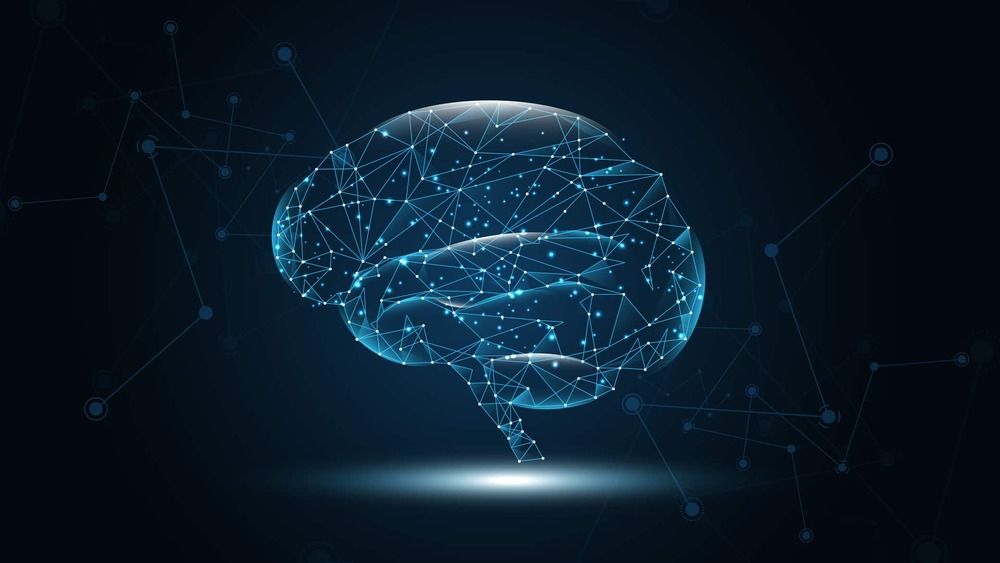Despite COVID’s impact on the economy, many companies in the data ecosystem have not just survived but thrived. Here are some key areas to watch.
Category: economics – Page 130

High-speed internet for Hoh Tribe
State Broadband Office Director Russ Elliott introduced the Hoh Tribe’s Economic Development Director to SpaceX Starlink. Almost overnight, the Tribe went from almost no connectivity to high-speed internet. Creative partnerships like this can help the state reach its goal to bring connectivity to every home by 2024.
Episode 20 — The Case for a Lunar Science Moon Rush
Hugely informative and surprisingly candid new Cosmic Controversy episode on why the Moon is so crucial to our collective space future with Notre Dame Planetary Geologist Clive Neal. Well worth a listen.
Notre Dame Planetary Geologist Clive Neal stops by the podcast for a terrifically candid discussion of why the Moon has to be the first stop en route to Mars. We talk about why the Moon holds the key to the new Space Economy; the prospects for NASA making its 2024 Artemis mission deadline; and, why lunar samples are still being analyzed 50 years hence. Why more lunar samples and lunar seismometers are keys to understanding our inner solar system. And why it’s imperative that we revisit the Moon in a permanent way if we are ever to make Mars our own. We also mull over the politics of all of this three weeks away from a pivotal presidential election.

DOD Announces $600 Million for 5G Experimentation and Testing at Five Installations
Today, the Department of Defense announced $600 million in awards for 5G experimentation and testing at five U.S. military test sites, representing the largest full-scale 5G tests for dual-use applications in the world. Each installation will partner military Services, industry leaders, and academic experts to advance the Department’s 5G capabilities. Projects will include piloting 5G-enabled augmented/virtual reality for mission planning and training, testing 5G-enabled Smart Warehouses, and evaluating 5G technologies to enhance distributed command and control.
“The Department of Defense is at the forefront of cutting edge 5G testing and experimentation, which will strengthen our Nation’s warfighting capabilities as well as U.S. economic competitiveness in this critical field. Through these test sites, the Department is leveraging its unique authorities to pursue bold innovation at a scale and scope unmatched anywhere else in the world. Importantly, today’s announcement demonstrates the Department’s commitment to exploring the vast potential applications and dual-use opportunities that can be built upon next-generation networks,” said Michael Kratsios, Acting Under Secretary of Defense for Research and Engineering.
The test sites include: Hill Air Force Base, Utah; Joint Base Lewis-McChord, Washington; Marine Corps Logistics Base Albany, Georgia; Naval Base San Diego, California; and Nellis Air Force Base, Las Vegas, Nevada.

Everything I Believed About Poverty Is Wrong
“Basic income is not a favor, but a right.”
Watch Rutger Bregman’s full TED Talk to learn the case for basic universal income: http://t.ted.com/xex6cs4.

How to Abolish Modern Day Slavery and Address its Effects
In 2020, slavery is not gone from this planet…
Ira Pastor, ideaXme life sciences ambassador, interviews Bakary Tandia, Co-Founder of the Abolition Institute, a group working to promote awareness of, and dedicated to ending, the practice of slavery in the west African country of Mauritania.
Slavery and enslavement are defined of the state and condition of being a slave, where the individual cannot quit their service to another person and is treated like property.
In chattel slavery, the enslaved person is legally rendered the personal property of the slave owner. In economics, the term de facto slavery describes the conditions of unfree labor and forced labor that most slaves endure. In the course of human history, while slavery was often a feature of civilization and legal in most societies, it is now outlawed in all countries of the world.
In 2019, approximately 40 million people, of whom 26 percent were children, were enslaved throughout the world despite it being illegal. In the modern world, more than 50 percent of enslaved people provide forced labor, usually in the factories and sweatshops of the private sector of a country’s economy. In the industrialized countries, human trafficking is the modern variety of slavery; in the unindustrialized countries, enslavement by debt bondage is a common form of enslaving a person, such as captive domestic servants, forced marriage, and child soldiers.

We are approaching the fastest, deepest, most consequential technological disruption in history
The next decade is going to be a transforming decade as many many technologies (some of which we all like to share in this group) are converging and maturing enough to rearrange our society in almost any aspect we can conceive.
I’m calling to those who are interested in creating and implementing an alternative model for the current social and governance systems, let’s build an open state that we can all support and trust regardless of our age, sex, geographical location, or belief system.
In the next 10 years, key technologies will converge to completely disrupt the five foundational sectors—information, energy, food, transportation, and materials—that underpin our global economy. We need to make sure the disruption benefits everyone.

#SpaceWatchGL Opinion: Satellite Technologies Use To Monitor Climate Change and Manage Environmental Disasters
The recent 2020 US West Coast wildfire has opened infernos, as it ravaged hundreds of homes and charred hundreds of neighborhoods. On September 10, 2020, CNN announced that the Creek Fire had taken more than 166,00 acres after destroying 360 structures in Central California, Amidst a state emergency, firefighters had to defeat the “beast” that turned the scenery to a similar fiction movies scene on a doomsday. Wildfire causes environmental disasters that were attributed by many scientists to climate change. The preparedness, detection, and management of wildfires and other environmental disasters, that affected the environment hinge on satellite technologies, essentially, the Remote Sensing of sea surfaces and land areas, and the civil space-based Earth Observation and its applications. Such space-based technologies are deployed to assess, monitor, and manage local, regional, and large-scale transboundary environmental issues that impact the societies, economies, and ecosystems. Thanks to its large areas’ data collection and high-frequency capabilities Earth Observation, in particular, has become a powerful tool to monitor the terrestrial environment and manage environmental disasters as it be addressed in this article.
Satellite technologies have been used to understand climate change better to find solutions to mitigate its deteriorating consequences, such as hurricanes, droughts, rising sea levels, melting polar ice caps, wildfire, and floods. Scientists relied upon various observation systems and satellite technologies, networks of weather balloons, buoys, and thermometer, to collect climate change’s evidence from the depths of the oceans to the top of Earth’s atmosphere. For instance, EO is relied upon to map the greenhouse gases. Earth Observation (EO) monitors the carbon dioxide (CO2) concentration, the second most abundant greenhouse gas component after water vapor, satellite monitored through water management, and weather forecast [1]. Public and private entities harnessed spectroscopy and satellites to monitor externalities data from various sources.